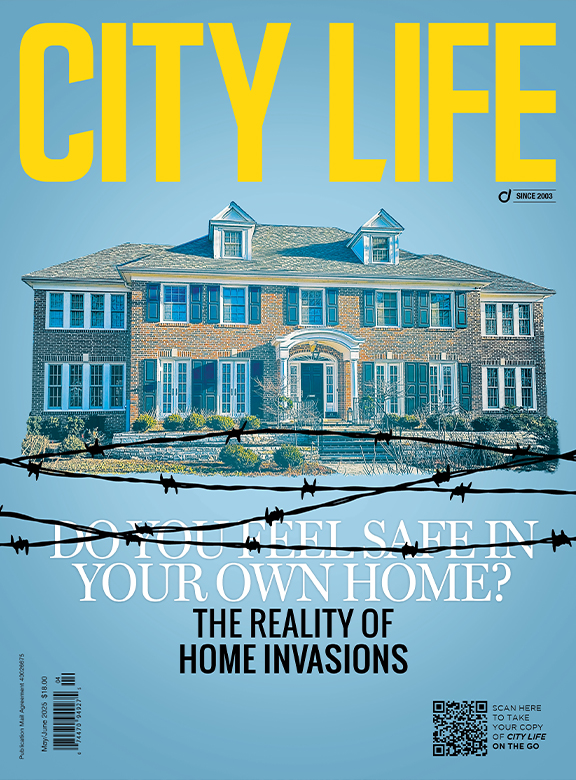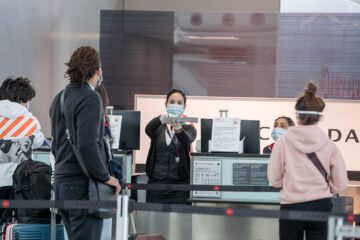A Uncharitable Case of Lost Luggage
When Nikita Rees and her husband, Tom Wilson, honeymooned in Europe last year, there was not one hiccup on the trip. Even when their luggage was lost on the trip home, they didn’t think it was a big deal. They assumed it would be found and they would get it soon. Little did they know what was coming: they would have to get the police involved and it would be four months before they would see their luggage again. Oh, and that’s after the airline told them their possessions had been donated to charity.
Newlyweds Nikita Rees, and her husband, Tom Wilson, had a wonderful honeymoon in Italy and Greece this past summer. In fact, it went off without a hitch, says Rees – until only her luggage made it home to Toronto on their flight last September. Because they had heard all about the issues at Pearson International, they had tossed trackers, a few AirTags, into their luggage, which told them that Wilson’s luggage was still in Montreal.
They were told to fill out a form when they got home, listing all the items. And then the wait started. Finally, a month later, they could see from the AirTag that the luggage was in Etobicoke. They were excited, thinking it was heading back to the airport, to a processing facility, perhaps. But no. “At one point our luggage showed up in what it looked like someone’s home,” she says. Many calls to Air Canada ensued. Her husband started taking screenshots every time the luggage moved. A few days later, Rees received an email stating that after an extensive search, the airline was unable to find their luggage, so they were going to be compensated the maximum amount, which is $2,200.
More phone calls, with Rees telling them that the luggage had been stolen, as they were not even informed that it had left Montreal. “Then our luggage showed up at a storage facility!” she says. They were excited (again), as they thought, OK, maybe this is Pearson’s overflow again, she says. “We were still kind of annoyed but a little more optimistic, [thinking] we’re going to get our luggage back, it’s going to be fine.” But no. Three and a half months later, the luggage is still showing up at the storage facility on the AirTag, and they go themselves to check it out but can’t locate anything. They went back to Pearson’s baggage claim, where they spoke to a manager. They shared the screenshots her husband had taken, including ones of his luggage traveling along the highway. Don’t worry, they were told, the luggage would be found.
In the meantime, her husband returned to the storage unit, where he found the unit the luggage was in, which was packed from floor to ceiling with hundreds of suitcases. That’s when they called the police, who obtained a warrant to search the storage locker. It was determined by the police that a charity organization contracted by the airline carrier had lawfully obtained the luggage from the airline after it was unclaimed.
Rees turned to social media and posted on TikTok, where she received overwhelming support. She started posting more updates on social media and they received even more attention. They got a call. And yes, they finally got their luggage back. But they also want answers to so many questions that they are unpacking now.
For their part, Air Canada has released a statement, affirming that they are constantly looking at and adopting new processes and new technologies in all aspects of their business, including baggage handling, to further enhance customer service under their commitment to continuous improvement. It reads, in part: You might take this opportunity to remind your readers, as we always recommend, to put personal contact information inside their baggage, for example a business card. It is often the case with extended bag delays, or in those very rare cases when bags are not returned, that this occurs because exterior bag tags become disconnected during the journey and we cannot identify the owner. We also strongly advise customers not to pack valuable, or essential items in their checked baggage, but instead carry them onboard the aircraft, or make other shipping arrangements.
But, Rees still has plenty to say to Air Canada. “Clearly their process is not working,” she says. At the end of the day, customer service should be the frontline and the most important frontline, especially when people are paying the amount of money that they’re paying the airline, she adds.
Now Rees and her husband are seeking legal advice, and they’re not just fighting for themselves, she says. They are fighting for others, too. The government is aware of what is happening, says Rees, and that it is completely wrong and that things need to change. “So hopefully it’s a start and a step in the right direction,” she says.















































































